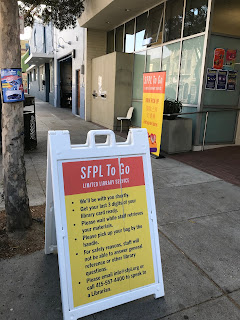Anne Applebaum has written a genuinely charming book about how many of her former friends on the center-right of Eastern European, British, and American societies have morphed into apologists and cheer leaders for authoritarian populism.
To a person of the left and center-left (like me), the question evokes an easy answer: woman, you had the wrong friends! Intellectually credentialed careerists, artistes, and recycled Reaganites do not make a promising bunch for building societies based in rule of law, honesty, equity, and equality. Yet I found Twilight of Democracy: The Seductive Lure of Authoritarianism nonetheless fascinating.
The book is a sort of travelogue of currently empowered right wing losers, from Poland, to Hungary, on to the UK of Boris Johnson's Brexit, through the Washington of Fox News. I read it as an audiobook. Anne Applebaum reads it herself and she's a very engaging reader. (With our libraries closed for the pandemic I haven't acquired a hard copy, so quotations in this post are from here.)
Applebaum is a resident of Poland; her husband was, until the current demagogues of the Law and Justice Party prevailed, an up-and-coming Polish politician. Her circle experienced the collapse of the Soviet empire in Eastern Europe as a new dawn. She has written significant histories of Stalinist atrocities. Before landing in Poland, she had worked in journalism in London and in the U.S., her country of origin. She's just about the definition of a modern cosmopolitan by personal history. Yet many of the people she once identified with have turned to vicious illiberalism. What happened?
The stories differ by place and context. But there are themes. Authoritarians need, and reward, people like her former friends.
“They need people who can use sophisticated legal language, people who can argue that breaking the constitution or twisting the law is the right thing to do ... They need people who will give voice to grievances, manipulate discontent, channel anger and fear, and imagine a different future.”
These useful idiots -- for what else can I call apologists for tyranny? -- thought they deserved to be overlords, but found themselves second-raters in healthy democratic societies. And the onrushing changes that healthy democratic societies can, fitfully, contain, evoked in these people only terror. She draws from the German-born American historian of the rise of Nazism, Fritz Stern, for her summation of their anxieties.
“What he was describing was people who were disturbed and distressed by modernity and by industrialization and rapid economic and social change. And it seems to me we’re living in a very similar era ...”
Of all these people, she finds Fox News hate-monger Laura Ingraham perhaps the most incomprehensible. Doesn't a multi-racial, multi-cultural United States afford enough scope for her? How could a peddler of vicious anti-immigrant tropes be the adoptive mother of immigrant children? In Ingraham's case she suggests that a desiccated Roman Catholicism which mistakes traditional rigidities for salvation as the root cause.
Okay, so Applebaum's former friends are repulsive -- but her project of trying to understand what went wrong feels honorable and a useful example.
After all, for those of us on the left side of politics, the Trump years have forced us to wonder again and again, how could some 40 percent of the people of this country remain infatuated with an incompetent, phony, lying, narcissist. He apparently serves needs that we are fortunate not to share, whether as an exemplar of unapologetic race bigotry, or of irresponsible boundless greed, or for just hating on those others, the liberals.
A society that serves most of its members is organized to provide hope and possibilities that tamp down the power of these oh-so-human instincts. That's not happening for too many of us. We have a lot of work to do.





































